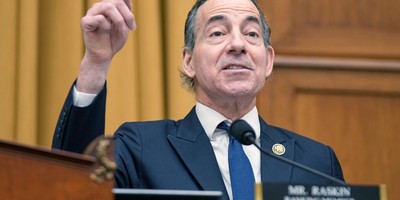That's not all that surprising, since the president appears to believe that the federal government is the sole and rightful owner of what you think is your money.
He says it isn't your money. He is convinced that it's his.
Thus you can expect him to oppose any measures that would allow you to hang onto the lion's share of the money you earn or receive from investments.
The Bush tax cuts will die of inaction at the end of 2010 if they are not extended. Mr. Obama doesn't want them extended. After all, the tax cuts were designed to allow you to keep a lot of the money you earn while limiting how much of your income the government can confiscate.
They cut taxes across the board for earned income, long-term capital gains and dividends. Among other changes, they expanded the child tax credit and put into effect a host of other tax code changes and adjustments, deductions, exemptions, and mitigated the so-called marriage penalty.
They were all a part of the Bush administration's efforts to bolster the economy, and they did the job.
It is more than obvious that refusing to extend them in a time of economic problems can do nothing but cripple the economy further.
The Economic Growth and Tax Relief Reconciliation Act (EGTRRA) of 2001 created six new tax rate brackets -- 10, 15, 25, 28, 33 and 35 percent, based on one's income levels. Failure to extend these cuts means that the 10 percent bracket will be eliminated, and those taxpayers will automatically be boosted into the 15 percent bracket. That would apply to all incomes below $34,550. The other tax rates would increase to 28, 31, 36 and 39.6 percent. In other words, the effect will be a sizeable increase in taxes due.
Recommended
One major provision due to expire at the end of this year is the child tax credit, which the 2001 tax cuts doubled from $500 to $1,000 per child. Unless Congress votes to extend this child tax credit, the maximum amount will revert back to $500 for tax year 2011, and the number of families eligible for that amount will be much smaller because stricter standards of eligibility that existed prior to the 2001 tax cuts will go back into effect.
Under those tax cuts, the maximum tax rate on long-term capital gains and qualified dividends was also reduced to 15 percent, with lower-income filers facing a 0 percent tax rate. Unless extended, the capital gains rate will go back to a maximum of 20 percent, and qualified dividends will resume being taxed at the regular tax rate of the filer, or as high as 39.6 percent.
It is simply impossible to believe that refusal to extend the 2001 and 2003 cuts will not harm the economy and endanger the nation's economic health.
As the Heritage Foundation has noted, both the president and the congressional leadership have portrayed this debate as one between the "haves" and the "have nots," the old tactic of promoting class warfare.
Instead, says Heritage, "This is a contest between those who want the blessings of strong economic growth versus those in Washington who would willingly sacrifice those blessings solely to satisfy their appetite for more revenues.
Heritage concluded that politics "has taken grip on this tax policy debate; the president in particular is making it a political debate rather than one on economic policy. The economic effects of not extending the 2001 and 2003 tax laws would impact all Americans, especially those who will just start their economic lives and the millions more trying to find work after the worst recession in 60 years."

























Join the conversation as a VIP Member